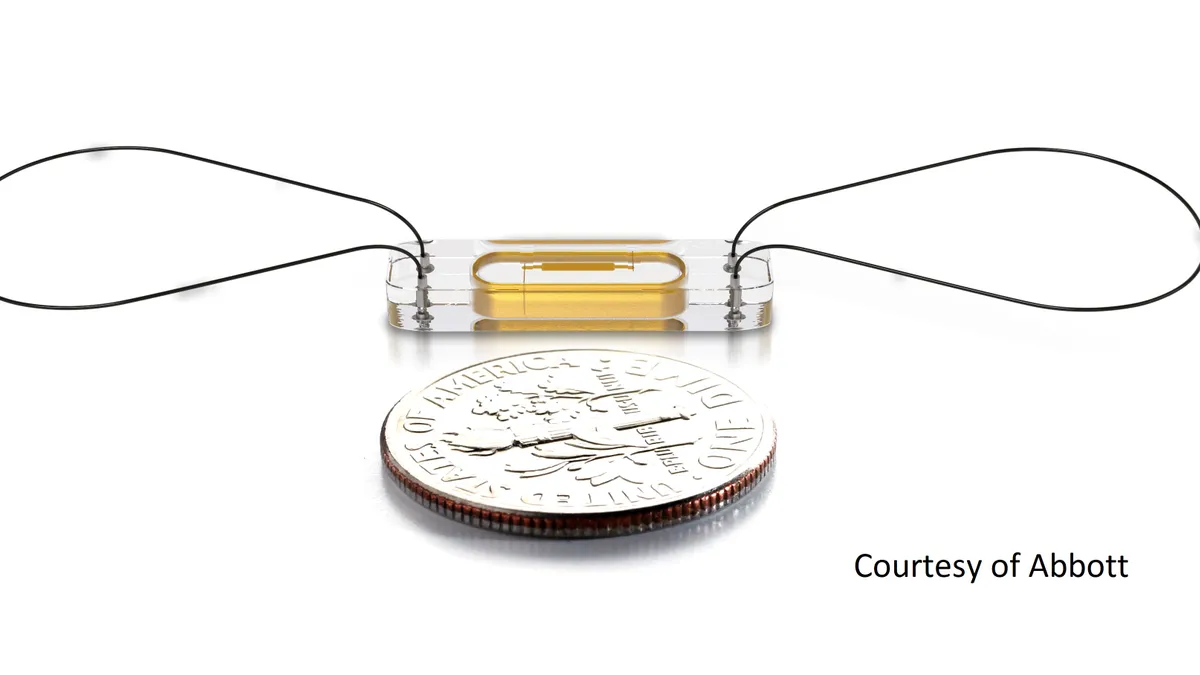Dive Brief:
- A new analysis shows remote monitoring via an implantable sensor significantly improves the survival rate of heart failure patients with reduced ejection fraction, a condition where the heart doesn’t pump blood as well as normal, according to Abbott.
- The company, which makes the CardioMEMS implant to track heart failure symptoms, said patients’ mortality risk was lowered by 25% after two years in the meta-analysis of three randomized clinical trials. Ejection fraction measures how much blood is pumped out with each heartbeat.
- The company has been investing in clinical evidence to support broader adoption of the technology, which is approved by the FDA for some heart failure patients.
Dive Insight:
Abbott CEO Robert Ford highlighted the CardioMEMS monitoring technology at the J.P. Morgan healthcare conference in January as one of the company’s most promising products. The small device, which is implanted in the pulmonary artery during a minimally invasive procedure, wirelessly transmits daily readings to a patient’s doctor.
About 6.2 million Americans have heart failure, according to the Centers for Disease Control and Prevention. Patients with reduced ejection fraction represent about half of those cases, one study found.
Monitoring for pressure changes in the pulmonary artery can provide early warning signals for worsening heart failure, according to Abbott.
“We limited the data set for the meta-analysis to the reduced-ejection-fraction patients who had been studied in the three trials that we put together, and that's where we saw this rather profound 25% reduction in mortality at two years,” Philip Adamson, chief medical officer for Abbott’s heart failure business, said in an interview.
“We've always said the value of preventing hospitalizations is not only quality of life … but that translates into prevention of progression of this disease. This study tells us that's true. But you have to follow people out to around 15 months before you see the mortality benefit of this approach,” Adamson said.
The CardioMEMS system was initially approved in 2014 for use in Class III heart failure patients with a hospitalization for heart failure within the prior year. The device received approval by the Food & Drug Administration in February 2022 for use in earlier-stage Class II heart failure patients. The indication allows the CardioMEMS sensor to be used for patients who undergo a blood test showing elevated levels of biomarkers known as natriuretic peptides, which indicate worsening heart failure.
The findings from the latest analysis were presented last week at the Technology and Heart Failure Therapeutics conference in Boston. The CardioMEMS device was not used in all three trials studied in the meta-analysis.










